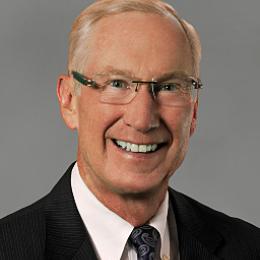
“It’s all about talent and teams — diverse and inclusive teams.” How many times, and how often, have I emphasized this philosophy? As often as possible — because it is the most important rule for your success. So, who are the best people for your team(s)? Of course, for different jobs and needs, you must have specific legal and technical expertise. But I want to outline the other attributes I find invaluable and probably the most critical when selecting talent. I’ll start with a guiding principle of General Charles de Gaulle: “The cemeteries of the world are filled with indispensable men.” No one is indispensable, and there are many talented diverse people to be a part of your team — you just have to find them.
The most important decision I make is determining who is on the team. Thus, I am personally involved in the interviewing of a number of open positions, including every lawyer hired. Otherwise, what type of message am I sending if I delegate my most critical decisions?
When we make a selection and an announcement is made, we are clear on why the particular individual was selected and why they align with our culture and values. Remember, your employees watch your decisions like hawks — who you hire, who you reward, who you promote, and who you terminate — every action should be consistent with the team and culture you want. There must be clarity on the “why” of these decisions.
I follow the “Rooney Rule” when we are seeking talent. There has to be diversity on every slate (both gender and other forms of diversity). The interviewers also have to be diverse to reduce the impact of our unconscious biases. I’ll illustrate this with a past search for the flight department leader at MassMutual. Our final list of candidates was incredibly impressive. All three were current leaders of flight departments at significant corporations. But all were white guys. We kept searching for qualified diverse candidates and included an African American man on the slate. He was a member of a flight department at a major company and an Air Force Academy and Emory MBA graduate. He did not have the same experience as the others, but for anyone who interviewed all four, it wasn’t even close — he was the clear choice.
His responsibilities gradually expanded. After serving us incredibly well for about five years, he recently left MassMutual for what is probably a better opportunity. It’s natural to think I would be disappointed. Instead, I took him out to dinner to thank him for all he accomplished for the company. One of my responsibilities is to train people to leave. I always tell folks in interviews, I hope they are incredibly successful at MassMutual and get promoted and advance either in the law department or in the business. But if not, and they decide to leave for a better position, we will celebrate together. If we establish a reputation for attracting and developing the best then their replacement most likely will be even better!
Keep in mind that your interview process sends signals too. You should only have your candidates come out twice — max. And studies will show that more than five interviewers can be counterproductive. After the second interview, make a decision. If you have to wait to see other candidates, that’s fine. I once was dragged to New York five times over several months to meet with a major company for a general counsel opportunity. It told me all I needed to know about their decision-making ability.
So what attributes do I look for and value? I want people on my team who are smarter than me (sort of a low bar). One of my guiding principles is: “If you are the smartest person in the room, you have a weak team.” I then look for people who have a track record of significant positive results achieved because they have good judgment and understand business. They should be creative (bring original ideas), proactive (see around corners), team players (value diverse and inclusive teams), focused (on serving customers and clients), curious (seek to continuously learn and improve), and hard workers. By “hard working,” that does not mean “butts in chairs.” Our world has moved well beyond that and, based upon many unique obligations many women have, may not be great for gender diversity. You can have your butt in the chair and be surfing the net, or you can be standing on the sidelines watching your daughter at a soccer game and thinking about a legal/business challenge. I want people who are always thinking — wherever they are — about what they and their teams can do to improve MassMutual.
I want to work with people who are comfortable with change and routine urgency. I need folks who prefer riding a roller coaster to the Queen Mary. Roller coasters are fast, have ups and downs, and are exciting. The Queen Mary is slow and steady and rarely changes course. In this world of constant change, the Queen Mary will likely find an iceberg and become the Titanic. We need to make decisions, move, and fail fast — but recover and learn even quicker. I appreciate people who are ambitious. Running the race fast to show your superior performance is great, but if you trip your coworker — you’re off my team. I also want individuals who aspire to win — they don’t come to work to just play the game, but to win. Finally, I want people who come to their jobs because they enjoy working together with the team and want to have fun.
Be careful thinking your new external hire is great or quickly expanding their responsibilities or compensation. You will want to unconsciously confirm your hiring decision and the time and effort you put into it. You may initially see faults as just an anomaly, but over time, you become aware they are real. It is best to have good succession planning and usually promote from within. Even with the best resume, references, and interviews, you can’t be certain what you are getting with an external candidate and if they will fit into your culture. It also sends the right message to the team that they are strong and that you develop and have internal talent when you promote from within. Keep in mind that an external hire usually causes no internal promotions. A high-level internal promotion may cause four more. With that in mind, you owe it to those who have entrusted their assets to you, and your boss, to ensure that you have at least two ready successors for your position (who are optimally diverse too).
Surround yourself with a strong team and exceptional people, develop and promote them, and they will tell you what to do to make you — and them — successful. These are the most important decisions you make.




